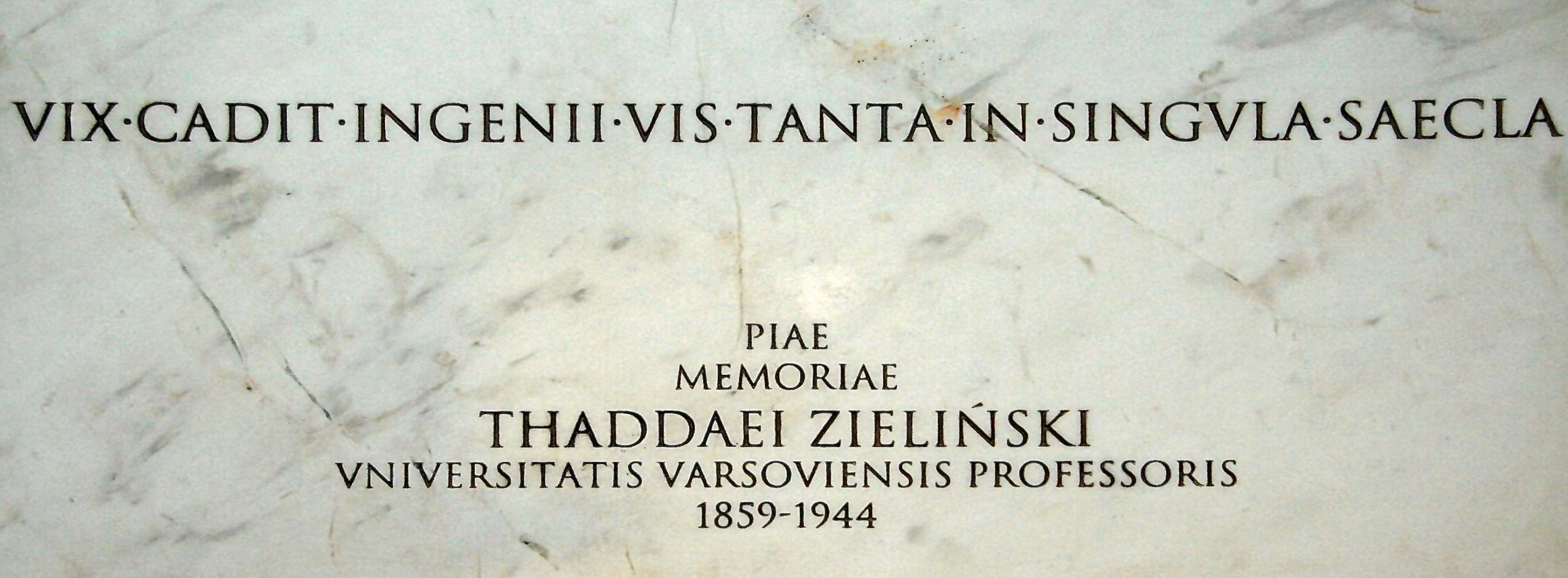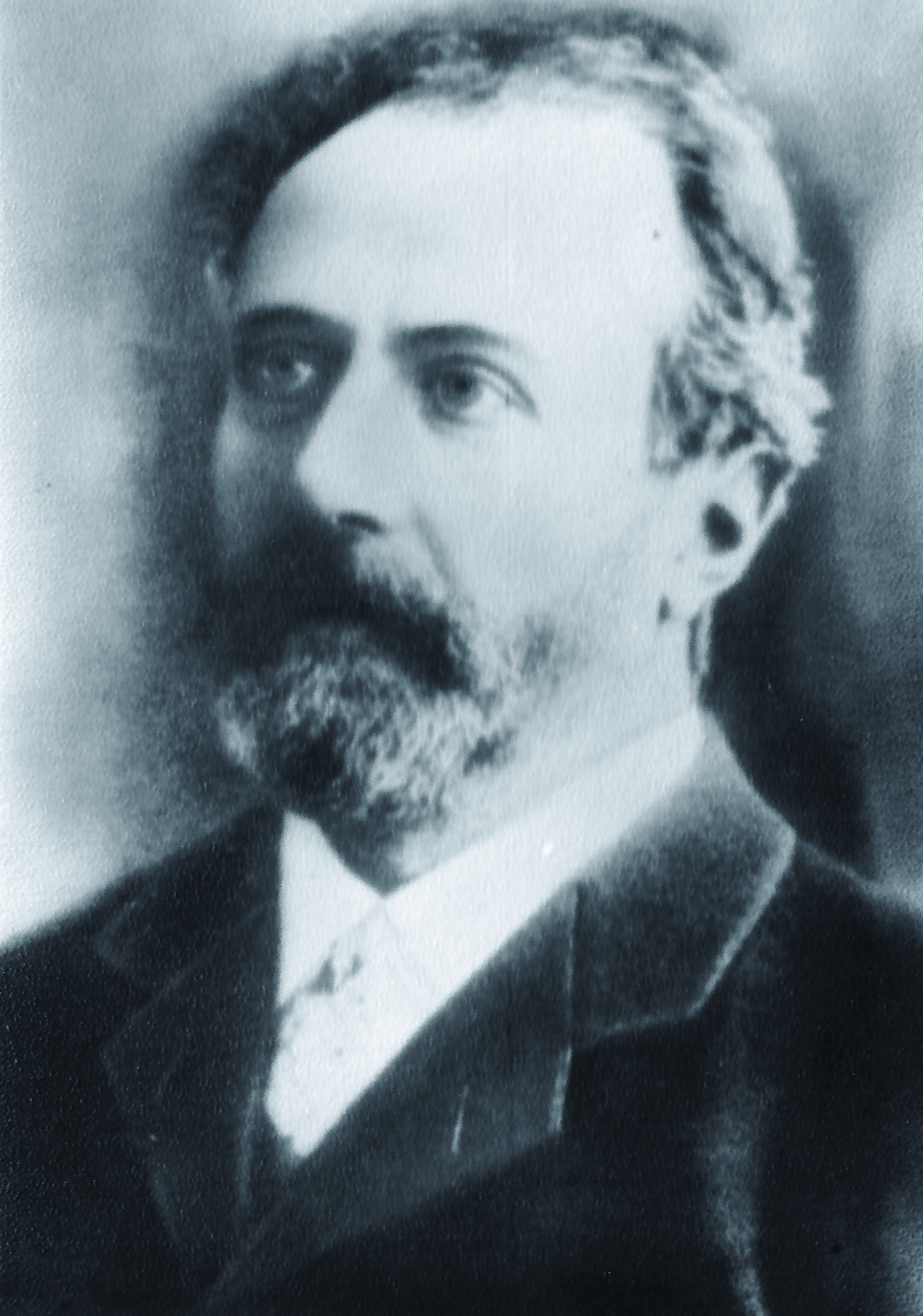Tadeusz Zieliński
, 1859 - 1944
Tadeusz Zieliński was one of the most important classical scholars of his time and a fervent promoter of classical culture and education. A philologist, ancient historian, historian of religion, essayist and translator (Zieliński translated several classical texts, including plays by Sophocles and Euripides, into Russian), equally at ease both in Greek and Roman literature; belonging to three cultures, he wrote in Russian, German, and Polish. Educated in St. Petersburg, Leipzig, Munich, and Vienna, he became a professor at the St. Petersburg University (1887–1920) and later at the University of Warsaw (1921–1935); he was revered by his students and by later generations of classicists as an inspiring teacher, ground-breaking researcher, and distinguished scholar who i.a. recognized the value of reception studies long before they became popular.
He was a member of the Polska Akademia Umiejętności [Polish Academy of Arts and Sciences]; Doctor honoris causa of multiple universities (including the University of Oxford, University of Athens and Jagiellonian University). His decorations include the Order of Polonia Restituta (for outstanding achievements in national culture) and the Greek Order of the Phoenix, 2nd Class. He was a colourful, unforgettable, and hugely popular figure in pre-war Poland; an exceptional, magnetic speaker, he was constantly invited to speak at home and abroad and greatly enjoyed his extensive travels, especially to the Mediterranean countries, as shown in his correspondence. At the initiative of Professor Jerzy Axer, the students of his students honoured him by a commemorative tablet at the Faculty of “Artes Liberales” of the University of Warsaw (below, phot. by Robert Przybysz).

Zieliński’s multilingual bibliography numbers over nine hundred works in the fields of classical philology, ancient history, ancient culture and religion, e.g. monographs on Cicero (Cicero im Wandel der Jahrhunderte, 1897), Sophocles (Sofokles i jego twórczość tragiczna [Sophocles and his Tragedies], 1928), and Horace (Horace et la société romaine du temps d’Auguste, 1938) or his six-volume work on ancient religions Religie świata antycznego [Religions of the Ancient World] (1918–1999). The last two volumes (the fifth volume’s manuscript was destroyed in a fire during the German bombardment of Warsaw in 1939) were written and completed by Zieliński during WW2. They remained unpublished for several decades due to the hostility of Communist authorities towards the great scholar. These volumes are a testament to his remarkable erudition and reflect a specific, spiritual and philosophical vision that developed in his later years. Furthermore, his autobiography (1924) was written in German and intended for his children. During WW2 and up until his last days (1939–1944), he jotted down his thoughts in his Polish diary, as well as his letters, especially those to his youngest daughter Ariadna in Russia (1922–1937) and the exchange of letters between his children in Germany, Russia and Japan (1958–1969) are of invaluable assistance in understanding Zieliński’s complex personality.
Among his works designed to popularise classical culture, there are also some examples of children’s literature.
Sources:
Zieliński, Thaddäus, Mein Lebenslauf – Erstausgabe deutschen Originals – und Tagebuch 1939–1944, Herausgegeben und eingeleitet von Jerzy Axer, Alexander Gavrilov und Michael von Albrecht; unter Mitwirkung von Hanna Geremek, Piotr Mitzner, Elżbieta Olechowska und Anatolij Ruban, Frankfurt am Mein: Peter Lang, 2012.
Olechowska, Elżbieta, ed., Tadeusz Zieliński (1859–1944). W 150 rocznicę urodzin, Warszawa: IBI AL UW, KNoKA PAN, 2011.
Bio prepared by Elżbieta Olechowska, University of Warsaw, elzbieta.olechowska@gmail.com
Records in database:



